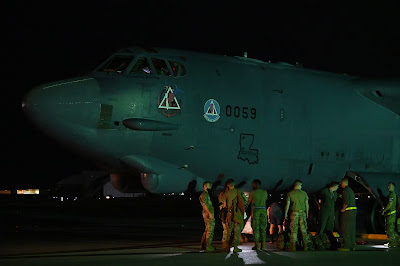The first and current Cold Wars represent the latest phase of an ongoing, 500-plus-year saga in world history. It was joined in 1945 by a young giant on the other side of the globe, the United States of America, which was awakened to its unavoidable role in the world. Yet few Americans realize the duration and depth of the struggle to which all of the people of the world are party simply by sharing the same planet.
This struggle which threatens the safety of the world and the freedoms of its people began in the late 1400s. Ivan III, also "Ivan The Great," led the Mongol's westernmost principality, Muscovy. He consolidated the territorial gains of his father, Vasily II, achieved in a series of wars against the Grand Duchy of Lithuania. Beyond Lithuania lay more defiant militaries -- those of the kingdoms of Poland and Sweden that confronted the Grand Duchy of Moscow over two centuries. But Muscovy gained an imperialist thirst that it has yet to shed or satisfy.
Muscovy in the 1540s, led by the first Tsar, Ivan IV or "Ivan The Terrible," was still a vassal state of the Mongols, also called the Golden Horde. But the Tsardom of Muscovy would no longer pay tribute and homage to the Khans. Ivan The Terrible turned his prideful, thirsty military forces toward the East. A fragmented shell of its former self, the Khans were easily defeated, allowing Muscovy to march 4,000 miles (6,435 km) all the way to the Pacific Ocean by 1650. It set up trading posts and Russian Orthodox Churches along the way.
The Tsardom of Muscovy returned its focus to the West again in 1721 when Peter the Great founded the Russian Empire. He refocused Russia's military to expand the empire westward, enjoying only partial success against the Polish Kingdom. With its institutionalized imperialism a part of its national identity, Russia needed to expand somewhere like water crashing against the rocks. So it expanded south into Caucasus, taking lands from the Ottoman Turks.
But every so often in its history, Russia was reminded of why it desired to control Western Europe. These reminders came in the Swedish invasion of Russia (1708–1709), as part of the Great Northern War (1700–1721). A century later came the French invasion of Russia (1812) by Napoleon and his allies. And the most devastating of all -- Nazi Germany's invasion of 1940 and the five years of bloody war that left more than 20 million dead just in the Russian-controlled Soviet Union.
From that war, the Soviets vowed it would never allow itself to be so wounded again. Its military machine came of age and was used to expand Russian domination farther west than it had ever before. The West was now almost universally led by liberal democracies that blessed its people with civil liberties and freed its citizens from the controls of royal monarchies. In 1917, Russia also shed its sovereign, replacing it with another ruthless totalitarian government that sought equality by denying its people life, liberty and property through collectivism and unity of purpose. Soviet people were not allowed to express themselves publicly except as to the glory of the state.
Not only did the Soviet Union fail to compete with the West, it considered the West's mantra of public expression of individualism a direct threat to the greatness of the state-proscribed Homo Sovieticus. The long-paranoid Russia and now Soviet Union turned inward, blocking out the outside world by building walls of all kinds -- travel restrictions, interfering with broadcasts, banning the sale of Western goods and, of course, building actual walls like the Berlin Walls. But some of its people found ways to smuggle in Western goods, creating a black market and mafia-like protection rackets.
Democratic uprisings in the Soviet Union and its satellite states were put down, often violently. Ultimately the Soviet Union sought to eliminate the West itself by building the most devastating war machine in the history of the Earth. At a time of a global arms race, the Soviets had more ships, tanks, planes and other weapons, including 40,000 nuclear warheads, than all of the Western democracies put together.
It could not afford to maintain this massive military machine. The Soviet Union collapsed under its own weight and corruption by 1991. Only after a brief dabbling with democracy and a significant dismantling of its costly military in the 1990s and into the early 2000s did Russia finally begin to improve its quality of life. But many of its people lamented the end of the Soviet Union, perceived slights to the greatness of Mother Russia, rising crime, its the fracturing of extreme conservatism and its shedding of lands to become free and independent nations again.
The rise of Vladimir Putin dismantled these early shoots of democracy, heralded the supremacy of Russian culture, and blamed external forces, principally the United States of America, for Russia's post-Soviet slide. Putin is far from the only one who subscribes to this vision of a new Russia, and indeed a new world, where they believe that personal liberties have gone too far, that God and country have been forsaken for individual desires and self actualization, and that they alone cherish the value of family, hard work and discipline, however false.
While it is still a clash of values primarily between East and West, it is far more complicated now. Russia is finding allies at home and abroad for its brand of extreme conservatism and denial of individual liberties. And where Russia doesn't find allies, it seeks to destroy those who stand in its way, leading the world to a new Cold War that has turned hot in isolated cases (Georgia, Ukraine, Middle East, etc), so far.
END




